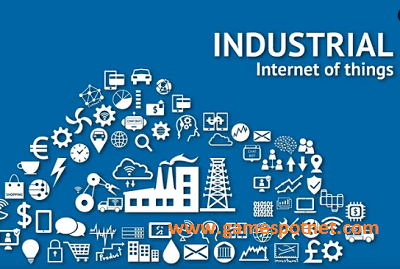In today’s interconnected world, the Internet of Things (IoT) has become an integral part of our daily lives. From smart homes to wearable devices, IoT has revolutionized various sectors. One area where IoT is making significant strides is in the industrial sector.
Industrial IoT, often referred to as IoT, is transforming industries by enabling seamless connectivity, real-time data monitoring, and advanced analytics. In this article, we will explore the concept of Industrial IoT, its importance, key components, applications, challenges, best practices, future trends, and more.
Table of Contents
What is Industrial IoT?
Industrial IoT refers to the use of IoT technologies and applications in industrial settings to improve operational efficiency, optimize resource utilization, and enhance overall productivity. It involves connecting physical devices, machines, sensors, and systems to the internet and leveraging the power of data analytics, cloud computing, and machine learning to gain valuable insights and automate processes.

Related Posts
2. Importance of Industrial IoT
Industrial IoT holds immense significance in today’s fast-paced and competitive business landscape. Let’s delve into some key reasons why organizations are increasingly adopting Industrial IoT solutions.
Enhancing Operational Efficiency
Industrial IoT enables organizations to streamline their operations by automating manual processes, reducing downtime, and optimizing workflows. By connecting machines and devices, organizations can gather real-time data, monitor performance, and identify areas for improvement. This leads to increased efficiency, reduced costs, and improved productivity.
Improving Predictive Maintenance
Predictive maintenance is a critical aspect of industrial operations. By leveraging Industrial IoT, organizations can monitor the condition of machinery, equipment, and infrastructure in real time. This data helps in predicting maintenance requirements and scheduling repairs proactively, reducing unplanned downtime and extending the lifespan of assets.
Enabling Real-Time Monitoring
Real-time monitoring is essential in industries where even a small delay or error can have significant consequences. Industrial IoT allows organizations to monitor processes, equipment, and environmental factors in real time. This enables timely decision-making, rapid response to anomalies, and improved safety.
Optimizing Resource Allocation
Efficient resource allocation is crucial for industries to reduce waste, optimize energy consumption, and improve sustainability. Industrial IoT enables organizations to monitor resource usage, identify inefficiencies, and implement measures for optimal utilization. This leads to cost savings and a reduced environmental footprint.
3. Key Components of Industrial IoT
Industrial IoT involves several components working together to enable seamless connectivity and data-driven decision-making. Let’s explore the key components that form the foundation of Industrial IoT.
Sensors and Actuators
Sensors and actuators are the building blocks of Industrial IoT. Sensors collect data from the physical environment, while actuators enable control and automation based on the collected data. These devices can measure various parameters such as temperature, pressure, humidity, vibration, and more, providing valuable insights into the operational status of equipment and processes.
Connectivity and Networking
Connectivity is crucial for Industrial IoT systems to transmit data between devices, machines, and cloud-based platforms. Wired and wireless communication technologies such as Ethernet, Wi-Fi, Bluetooth, and cellular networks enable seamless connectivity and real-time data transfer. Networking protocols like MQTT and CoAP facilitate efficient and secure communication between devices.
Data Analytics and Machine Learning
Data analytics and machine learning play a vital role in extracting meaningful insights from the vast amount of data generated by Industrial IoT systems. Advanced analytics techniques, including statistical analysis, predictive modeling, and anomaly detection, help organizations derive actionable intelligence and make data-driven decisions. Machine learning algorithms enable the system to learn and adapt over time, improving performance and efficiency.
Cloud Computing
Cloud computing provides the scalability, storage, and processing power required to handle the massive amounts of data generated by Industrial IoT devices. Cloud platforms offer secure storage, data analytics tools, and machine learning capabilities, allowing organizations to harness the full potential of their Industrial IoT deployments. Cloud-based solutions also facilitate remote access, collaboration, and scalability.
4. Applications of Industrial IoT
it finds applications across various industries, revolutionizing processes, and unlocking new possibilities. Let’s explore some prominent sectors where Industrial IoT is making a significant impact.
Manufacturing and Supply Chain
Industrial IoT is transforming the manufacturing industry by enabling predictive maintenance, optimizing production lines, and improving supply chain management. Connected sensors and devices provide real-time visibility into production processes, inventory levels, and logistics, allowing organizations to identify bottlenecks, enhance quality control, and reduce lead times.
Energy and Utilities
In the energy and utilities sector, Industrial IoT helps optimize energy generation, distribution, and consumption. Smart grids, enabled by IoT technologies, allow real-time monitoring of energy usage, grid stability, and predictive maintenance of critical infrastructure. This results in improved energy efficiency, reduced costs, and a more reliable energy supply.
Transportation and Logistics
Industrial IoT is revolutionizing transportation and logistics by enabling efficient fleet management, route optimization, and real-time tracking of goods. Connected vehicles, smart warehouses, and logistics platforms equipped with IoT sensors and GPS technologies streamline operations, minimize delivery delays, and enhance overall supply chain visibility.
Healthcare and Pharmaceuticals
In the healthcare industry, Industrial IoT plays a crucial role in remote patient monitoring, asset tracking, and improving operational efficiency. Connected medical devices, wearables, and IoT-enabled healthcare systems allow healthcare providers to collect patient data, monitor vital signs, and deliver personalized care. Industrial IoT also facilitates temperature monitoring, ensuring the integrity of pharmaceutical products during transportation and storage.
Agriculture and Farming
Industrial IoT is transforming traditional farming practices by enabling precision agriculture, smart irrigation, and livestock monitoring. Connected sensors, drones, and autonomous machinery provide real-time data on soil moisture, weather conditions, crop health, and livestock behavior. This data helps farmers optimize irrigation, fertilization, and pest control, leading to increased yields and resource efficiency.

